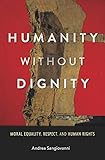Humanity without dignity : moral equality, respect, and human rights / Andrea Sangiovanni.
Material type: TextPublication details: Cambridge, Massachusetts : Harvard University Press, (c)2017.Description: 1 online resource (x, 308 pages)Content type:
TextPublication details: Cambridge, Massachusetts : Harvard University Press, (c)2017.Description: 1 online resource (x, 308 pages)Content type: - text
- computer
- online resource
- 9780674977440
- HM821 .H863 2017
- COPYRIGHT NOT covered - Click this link to request copyright permission: https://lib.ciu.edu/copyright-request-form
| Item type | Current library | Collection | Call number | URL | Status | Date due | Barcode | |
|---|---|---|---|---|---|---|---|---|
 Online Book (LOGIN USING YOUR MY CIU LOGIN AND PASSWORD)
Online Book (LOGIN USING YOUR MY CIU LOGIN AND PASSWORD)
|
G. Allen Fleece Library ONLINE | Non-fiction | HM821 (Browse shelf(Opens below)) | Link to resource | Available | ocn989974757 |
Liberalism and our modern allegiance to human rights rest on a foundational commitment to moral equality. But why, given our differences, must we always treat one another as equals? Most who have attempted to answer this question have appealed to the idea of dignity, the idea that all human beings possess an intrinsic worth--grounded in capacities, for example, to reflect, reason, or love--that raises us up in the order of nature. In Humanity without Dignity, Andrea Sangiovanni rejects this predominant view and offers a radical alternative. He argues that, to understand our commitment, we must begin with a consideration not of equality but inequality. Rather than search for a chimerical value-bestowing capacity possessed to an equal extent by each one of us, we ought to ask: Why and when is it wrong to treat others as inferior? He comes to the conclusion that our commitment to moral equality is best explained by a rejection of cruelty rather than a celebration of rational capacity. He then traces the impact of this fundamental shift for our understanding of human rights, and the place of anti-discrimination norms in that understanding.--
Includes bibliographies and index.
Part one. Foundations: Against dignity -- Moral equality, respect, and cruelty -- Why and when is discrimination wrong? -- Part two. Human rights: The concept of human rights: the broad view -- International legal human rights and equal moral status -- Fundamental rights, indivisibility, and hierarchy among human rights.
COPYRIGHT NOT covered - Click this link to request copyright permission:
There are no comments on this title.
